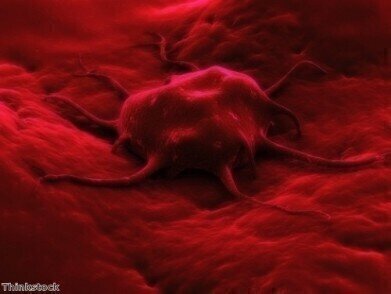News
Genetic abnormality offers diagnostic hope for children’s cancer
Apr 04 2012
A chromosomal abnormality in children with a deadly form of brain cancer is linked with a poorer chance of survival, clinician scientists at The University of Nottingham have discovered.
The study led by experts at Nottingham’s Children’s Brain Tumour Research Centre as part of a European collaboration could potentially lead to a new diagnostic test to allow doctors to identify youngsters who are at the highest risk associated with an ependymoma tumour; also help them to decide which children with the tumour have a better prognosis and would benefit from less intensive therapies, reducing their exposure to a range of side effects which can cause permanent disabilities.
The research, led by Professor Richard Grundy and Dr John-Paul Kilday, found that increased copies of a specific region of a chromosome called 1q25 were associated with around 20 per cent of the 147 tumours they tested from European children with ependymoma and that it was associated with a worse outcome in younger children treated with surgery and chemotherapy.
In addition, when combining the results for 1q25 copy gain with how much tumour was removed at the time of surgery, the scientists could accurately place the children into three risk groups — high, intermediate and standard.
Dr Kilday said: “This study is the first to assess copy number gain like this in groups of children with ependymoma who have been treated in a similar way and is an important step forward in being able to predict the future for children with these brain tumours.”
“We are now hoping that these findings are reproduced in other studies currently underway in other countries, including the USA,” added Professor Grundy. If their results match ours, then the presence of 1q25 copy gain in childhood ependymoma could be introduced into future international treatment planning as a new marker of poor outcome which will in turn define treatment. We would intend that this should be something each patient’s tumour is tested for at the time of diagnosis.”
Ependymomas are brain tumours that can occur at any age but are more common in children. Despite improvements in therapy over recent years, the prognosis for children with this cancer remains poor — 40 per cent of affected children still die.
Digital Edition
Lab Asia Dec 2025
December 2025
Chromatography Articles- Cutting-edge sample preparation tools help laboratories to stay ahead of the curveMass Spectrometry & Spectroscopy Articles- Unlocking the complexity of metabolomics: Pushi...
View all digital editions
Events
Jan 21 2026 Tokyo, Japan
Jan 28 2026 Tokyo, Japan
Jan 29 2026 New Delhi, India
Feb 07 2026 Boston, MA, USA
Asia Pharma Expo/Asia Lab Expo
Feb 12 2026 Dhaka, Bangladesh



















